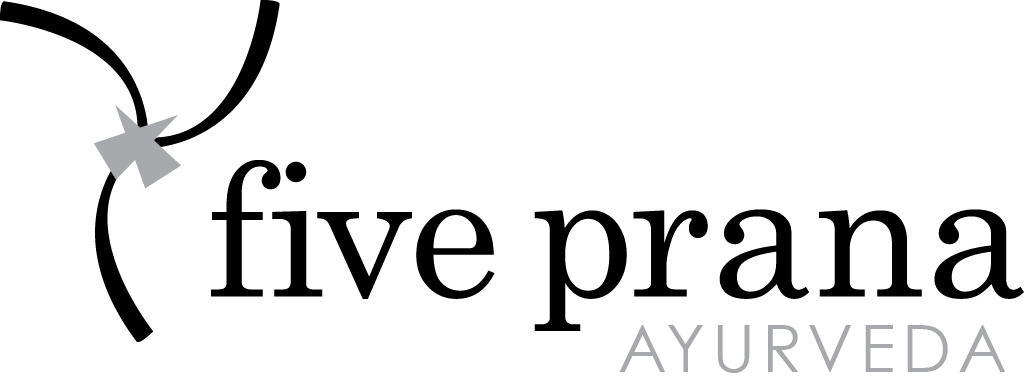Which Dosha Am I?
/PHOTO BY CARRIE GABELLA PHOTOGRAPHY
Prakruti vs. Dosha
There are three dosha types in Ayurveda: vata, pitta and kapha. The word “dosha” doesn’t have a perfect translation; however, when most people think of what their dosha is, they are thinking of their Prakruti. In Ayurveda, Prakruti refers to your individual inherent nature or constitution that determines your physical, physiological and mental character as well as disease vulnerability. Prakruti is often referred to as your “dosha” or as your “mind/body type.”
Your Prakruti is genetically determined and remains unaltered during our lifetime. Your Prakruti is the unique combination of the 3 doshas of Vata, Pitta and Kapha that were present in your body at the time of your birth. The doshas are the primary life forces in the body and each of us possesses all 3 dosha in our physical and psychological makeup.
PHOTO BY CARRIE GABELLA PHOTOGRAPHY
Vata Dosha Qualities
Dry
dry skin, hair, lips, tongue
tendency toward constipation which is dryness in the colon
hoarse voice which is dryness in the throat
scanty urination and hard, dry stools
Light
thin frame, light weight and light muscles
tendency toward insomnia and sleep disturbances which is sleep lightness
proneness to anorexia and forgetting to eat
Cold
cold hands, feet and poor circulation
prefers a warm climate and has a sensitivity to cold climates
cold and stiffness in the muscles and joints
Rough
rough, dry, cracked skin, nails, hair, teeth, as well as hands and feet
tendency toward cracking and popping joints
Subtle
subtle emotions like fear, worry, anxiety, and nervousness
tendency toward muscle twitching, tremors and goosebumps
body frame and immunity is delicate
Mobile
vata is the dosha of movement so vata individuals are fast/mobile talkers, walkers, and are often doing many things at once
tendency toward mood swings and can be moody
restless legs, eyes, hands and feet; and often jittery
frequent vivid dreams
loves to travel and doesn’t like to stay still
difficulty with commitment and stability and tend to feel ungrounded
Clear
clear, open mind
tendency toward loneliness and hopelessness
understands quickly but also forgets quickly; very alert
able to see through the veil, clairvoyant
Astringent
tendency toward a dry, choking sensation in the throat
tendency toward getting hiccoughs and burping
Pitta Dosha Qualities
Slightly Oily
soft slightly oily skin, hair and feces
tendency toward sensitivity to fried foods
Sharp
sharp teeth and eyes
sharp words and biting tongue
sharp, pointed nose
sharp, tapering chin and a heart-shaped face
good digestion, absorption and assimilation
sharp memory and ability to grasp new ideas
tendency toward irritability
Hot
strong agni or digestive fire as well as a strong appetite
runs at a higher body temperature
dislikes hot weather and hot climates
tendency toward graying hair and hair loss or baldness
Light
light/medium body frame
fair skin complexion
bright and shining eyes
tendency toward sensitivity to bright light
Liquid
loose stools
profuse urination
tendency toward diarrhea
excessive thirst
profuse sweating
Spreading
tendency toward acne, rashes and inflammation especially skin inflammation
desire to leave a legacy and spread their name and ideas
Sour
sour stomach acid
tendency toward acidic pH
teeth sensitivity
profuse salivation
Bitter
bitter taste in the mouth
sensitivity to bitter taste
tendency toward nausea and vomiting
tendency toward being cynical and bitter
Pungent
tendency to have heartburn and hyperacidity
when stressed will often feel anger and hatred
Fleshy Smell
fetid smell in the armpits, mouth and feet
tendency toward smelly shoes and socks
Red
reddish tint to the skin
flushing skin
red eyes, cheeks and nose
sensitivity to red color
Yellow
yellow eyes, skin, urine and feces
tendency toward jaundice
overproduction of bile
sensitivity to yellow color
Kapha Dosha Qualities
Heavy
heavy bones and muscles
large body frame
tendency toward obesity and being overweight
grounded
deep and heavy voice
Slow/Dull
walks and talks slowly
slow digestion (manda agni)
slow metabolism
sluggish
Cool (Cold)
cold clammy skin
steady appetite and thirst
tendency toward mucus formation and colds, congestion and coughs
cravings for sweets
Oily
oily skin, hair, and feces
well-lubricated joints and organs
Smooth/Slimy
smooth skin
calm and gentle demeanor
smooth organs
Dense
dense body fat
thick skin, hair, nails, and feces
firm muscles
compact tissues
tendency toward constipation when out of balance
Liquid (Damp)
excess salivation
congestion in the head, chest and sinuses
Soft
soft face
loving, caring, compassionate and kind
Static
tendency toward being sedentary
loves to sit around and do nothing
loves to relax
homebody
Gross
obesity
causes obstruction in the body systems
Cloudy
mind is foggy and cloudy early in the morning during kapha time of day 6am-10am
tendency to need coffee to begin the day
Sticky (Viscous)
sticky/viscous quality creates compactness and firmness of joints and organs
loves to give affection and hugs
becomes attached when in love and in relationships
Hard
firm muscles
strength
rigidity
stubbornness
Sweet
anabolic action of sweet taste stimulates sperm formation and increases the quantity of semen
strong sexual desire
when out of balance, there will be cravings for sweets
Salty
helps with digestion and growth
gives the body energy
maintains osmotic condition
when out of balance, there will be cravings for salty foods and water retention
The best way to determine your dosha is to schedule an Ayurvedic Consultation with us. However, you have probably heard of dosha quizzes that are often found online. These can be a jumping off point in determining your dosha, but should not be used as a replacement for an Ayurvedic Consultation. These quizzes do not utilize the assessment tools of Darshanam or visual, Sparshanam or palpation, Prashnam or questioning, and Ashtavidha Pariksha or the 8-fold method of clinical examination are time-honored methods that have been used for centuries by Ayurvedic healers, and they produce the most accurate results when determining dosha or prakruti.
Take the Five Prana Dosha Quiz.



